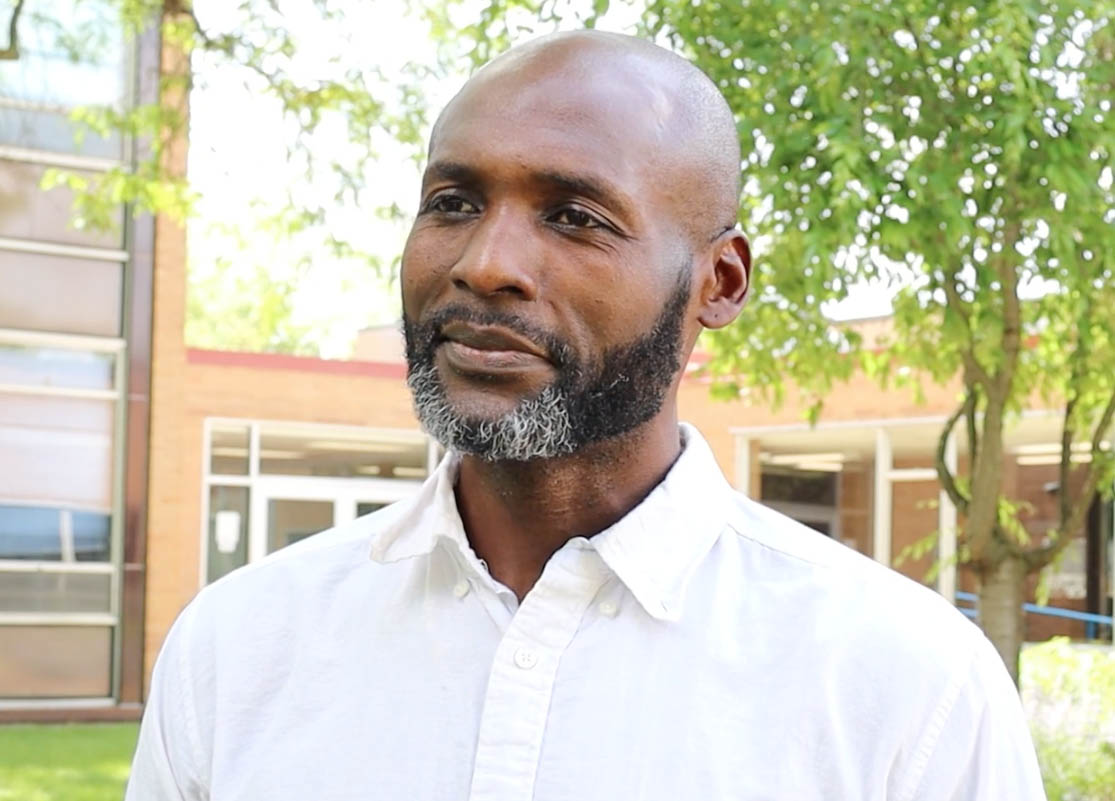
Herve Djoumbi is no stranger to taking risks. So it seemed only fitting when Covid inspired him to consider another path.
“I was working from home and had a lot of time to think about what direction I wanted my life to take,” Herve said. “One thing I knew for sure, I didn’t want the type of life where I go to work, come home, sit on the couch and watch TV. I wanted to do something impactful.”
He’d already accomplished so much.
Leaving Cameroon as a teenager to study in Europe.
Completing three years of a five-year engineering program.
Moving to the U.S. to finish his degree – inspired by a visit to his medical student sister in Ann Arbor – even though he did not speak English.
Enrolling in an ESL program to gain English language proficiency.
Earning a two-year degree from Schoolcraft College before transferring to Lawrence Tech.
Graduating from LTU in 2017 with a Bachelor of Science in Mechanical and Manufacturing Engineering Technology.
Receiving a job offer from a Japanese automaker before he even graduated.
Becoming a U.S. citizen!
And still, he yearned for an impact of a different kind.
That’s when he sought the advice of LTU professor George Pappas and discovered the University’s Master of Science in Artificial Intelligence (AI) program.
When Herve learned the program was new, “That’s when I got excited the most. Because I wanted to be the first to graduate from the program. Everything I do I like to be the first.”
He also wanted to make an impact on liver disease, particularly in his home country where healthcare is not very advanced. Five members of his family back home had died from Hepatitis B, a common form of liver disease.
“In the U.S., you may have one doctor for every 20 people; but in Africa, you have one for every 200. So, if I’m sick and I want to see the doctor, it takes too long to get in and by then it’s too late,” Herve said of liver disease, a silent killer for its lack of symptoms.
As Herve sees it, AI can cut through the clutter by helping overburdened physicians diagnose patients faster and more efficiently, leading to early intervention and life-saving treatment.
“Doctors are human. They can be very busy and miss things,” said Herve. “AI can help by looking at the complexities and the patterns of disease and then add a red flag that says, ‘this patient has malaria, but double-check his liver.’”
While Herve currently works full-time as a product design engineer, he’s open to working in the healthcare field after he graduates. And with critical thinking, collaboration, teamwork, and creativity at the core of the AI program, he thinks he can make the transition.
True to form though, he expects to make another change down the road, making good on that pandemic promise. “Later in life, I want to go back home and be a teacher, and give back everything I learned in the program and in the professional world.”
Author: Pam Houghton